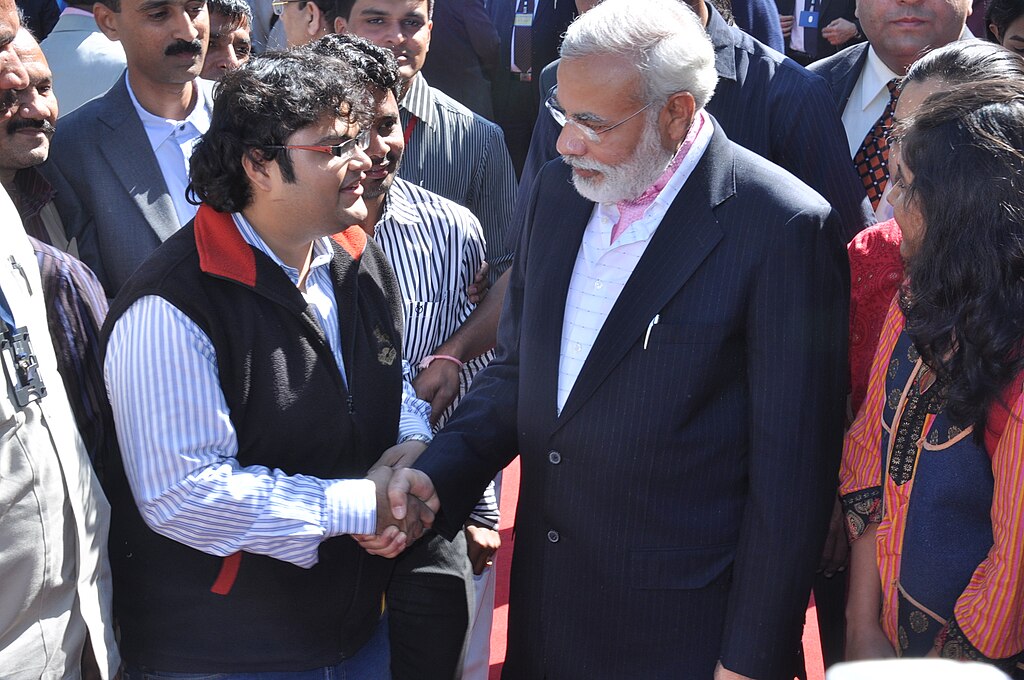Very soon 1.4 billion Indians will be coming to the polls, expected to be held in April and May 2024. It will be the largest democratic experiment ever seen. For the past ten years, Narendra Modi of the incumbent Bharatiya Janata Party (BJP) has led India as the prime minister – and he is expecting an unprecedented third term in the upcoming election. His optimism is shared by many of the commentators on Indian politics.
The prime minister’s popularity as a political strongman appeals to the large Hindu majority of the country, despite the antagonism which greets his anti-Muslim rhetoric. Opponents argue that he is undermining India’s secular constitution by appealing to its 80 percent Hindu majority whilst encouraging discrimination and violence against the 14 percent of Muslim minority. In theory, the democratic setup in India should protect minority rights. BJP policies are clearly acting in a way that asserts Hindu cultural supremacy, diminishing pluralism and the diversity present in its society. Moreover, there have been widespread accusations regarding the BJP eroding the independence of the judiciary, muzzling critical media and using government agencies to jail political opponents.
In response leaders of the BJP have denied this erosion of democracy in India. They point to Modi’s 78 percent approval rating and his government’s record in tackling infrastructure, corruption, and other issues which previously hindered growth under the Indian National Congress party. Regarding the alleged persecution of Muslims, the BJP has responded by saying that its “Hindutva” ideology does not seek to marginalise Indian Muslims but rather to restore a national identity suppressed under Mughal and British rule.
Similarly, Morning Consult – which tracks weekly approval ratings of more than twenty democratically elected world leaders – found that 78 percent of Indians surveyed in late November of 2023 approved of Modi’s job performance. Despite continued accusations of discrimination towards minorities, it has gained a majority support.
Western countries have also seemed to be largely unconcerned with claims of democratic backsliding in India. Their reluctance to criticise Modi and the BJP, however, comes with a strategic view in which India can act as a counterweight to China. As such, they look past the democratic backsliding taking place in India. It seems that it would take a lot more for leaders in western governance to raise more vocalised concerns about the state of Indian democracy.
A victory for the nationalist BJP is looking likely – despite the regression of democracy under their rule. India’s best chance of challenging Modi has been shown through an alliance of centre-left and regional parties unveiled in July last year as the Indian National Development Inclusive Alliance or INDIA. Consisting of 26 opposition parties, including Congress, this new coalition proves to be a more concerted challenge for the BJP as it attempts to secure a third term in power. However, just months before the general election is expected to take place, the INDIA alliance seems to be collapsing rapidly as parties have made little headway in the discussion of seat-sharing. Many experts have pointed almost to an inevitability that Modi wins for a third-term running this year.
The 2024 general election may be a turning point for India. Since Modi’s ascension to office a decade ago, India has grown from the tenth-largest economy to the fifth and has further become a critical partner in America’s conflict against China. Its stock as a player in global politics has risen as a result of geopolitical crises in Europe and increased tension between China and the United States. Nevertheless, persistent allegations from critics both at home and abroad have pointed to Modi as repressing political dissent and marginalising Muslims in India. With the spirit of India’s democracy and some institutions that uphold it under strain, this coming year’s election could be crucial for the future of India’s democracy, and for the direction of this increasingly powerful and globally-minded superpower.
Write for us!
Interested in writing for the OX1 column, looking for somewhere to turn your article idea into a reality? Then look no further. Both the Global Affairs and Environment Section are looking for new writers and contributors. If you’re interested in student journalism and want to get involved make sure to join the Oxford Blue writers group on Facebook.
Oxford Blue Writers Group:
https://www.facebook.com/groups/2462003647260904/?mibextid=oMANbw
Global Affairs Writers Group:
https://www.facebook.com/groups/441255647575456/?mibextid=oMANbw

